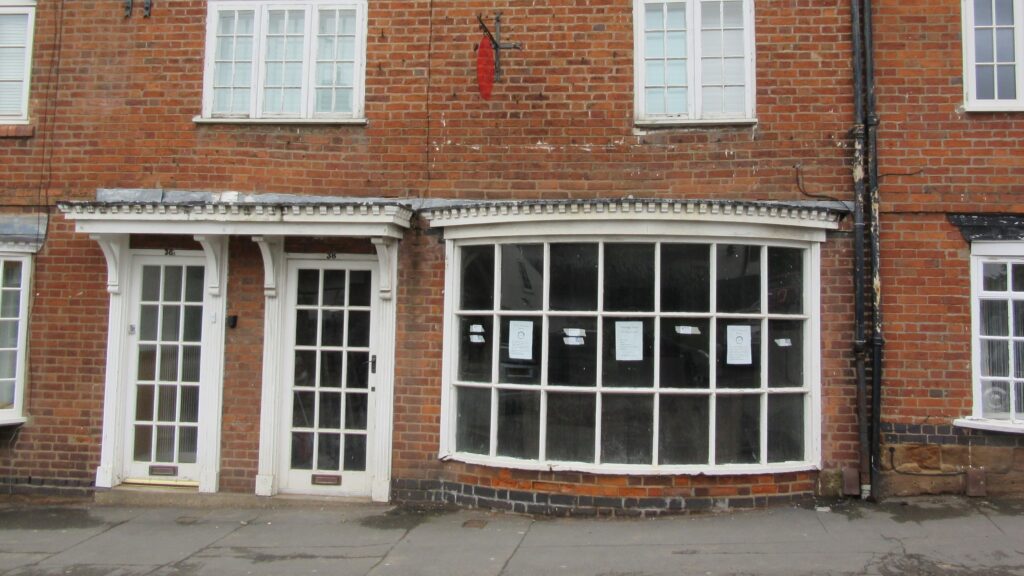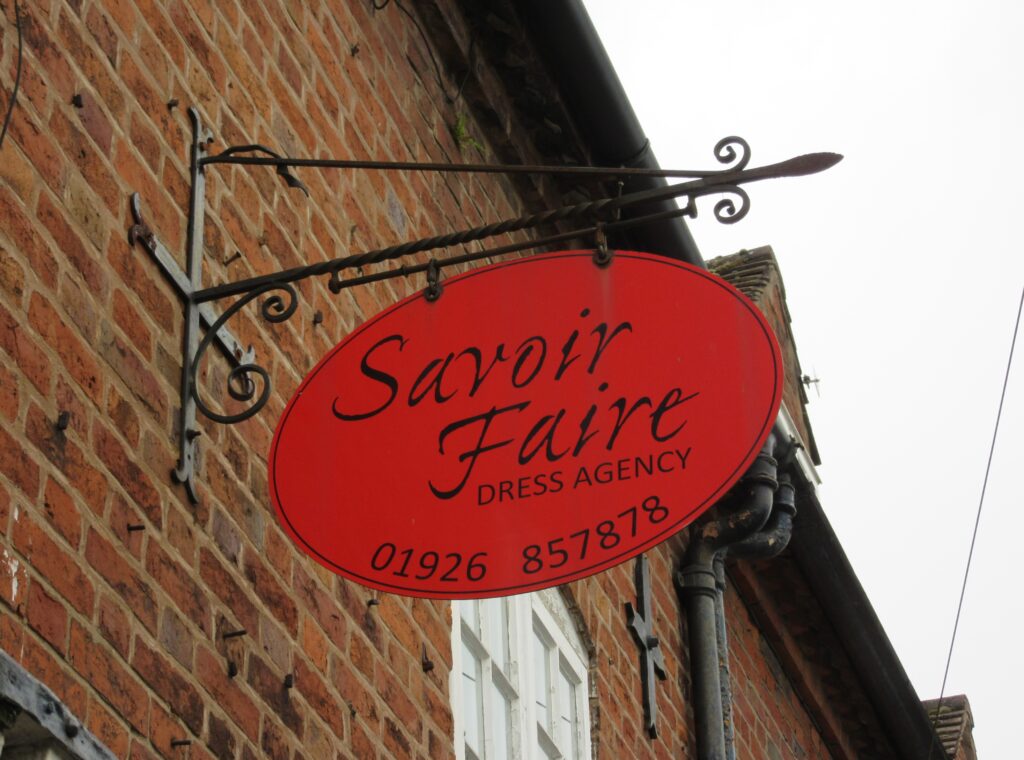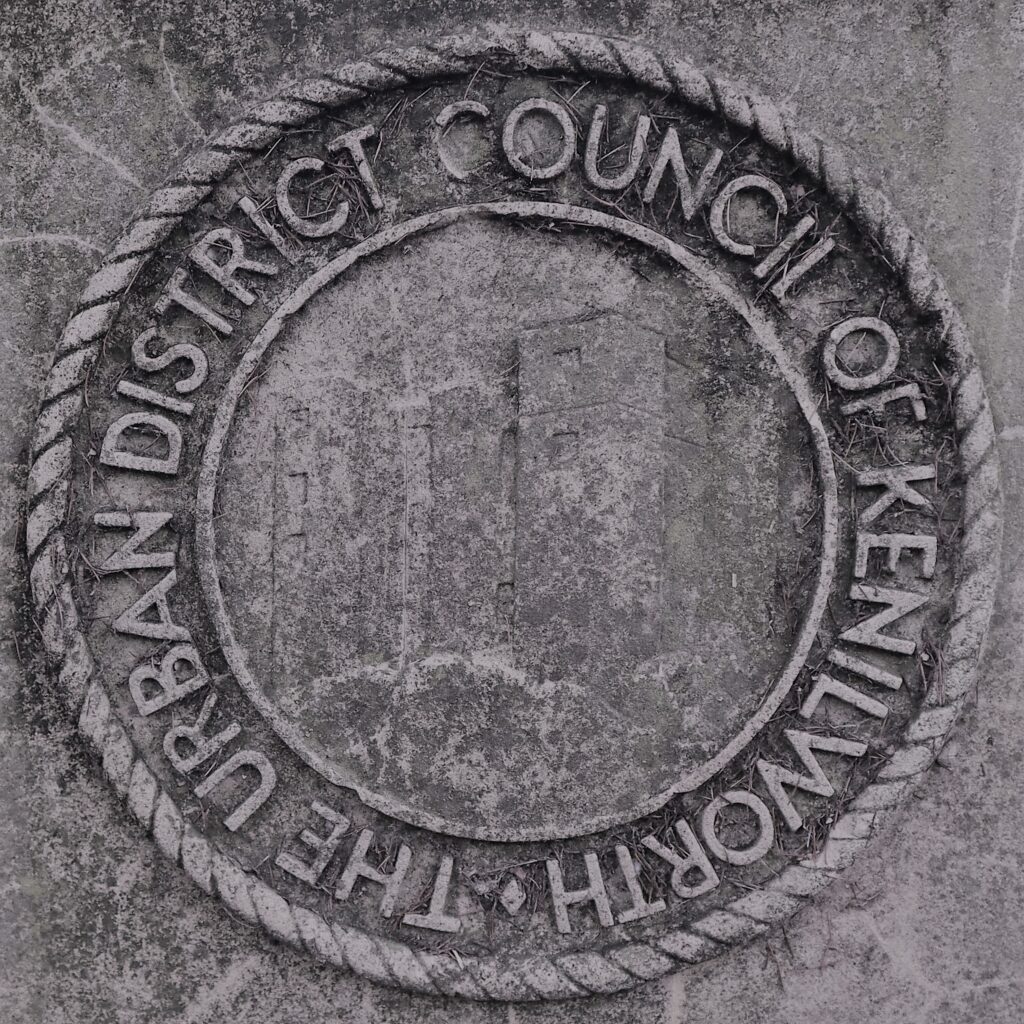

An urban district was a local government district that covered an urbanised area. They had an elected council (UDC) and shared the local government responsiblies along with county councils.
These urban districts (and rural districts) were first created in 1894 by the (Local Government Act 1894) as subdivisions of administrative districts. These reforms of local government started mainly in England and Wales. But within a few years Northern Ireland and the Republic of Ireland also adopted these reforms.
UDCs replaced the former system of urban sanitary districts or local boards (based on poor-law unions) the functions of which were taken over by the new UDCs. Their powers were extended and also had the responsibilities of parklands, cemeteries, water supplies and local planning.
The principal effects of the act were:
The urban district system (and RDCs) would have elected councils, as would parish councils. This would form a second tier of local government below the county councils.
The entitlement of women who owned property to vote in local elections, become poor-law guardians, and sit on school boards.
All councillors would initially be elected for a three year term, but one third of the members would be required to stand for re-election each year (around April). So, basically it was a rotation system. However, UDCs (and RDCs) had the power to retain the triennial election if a two-thirds majority of councillors were in favour ot it.
To be eligible for an election, a candidate was required to be on the electoral register and to have lived in the area for 12 months prior to the election.
All electors only had one vote, unlike in previous years where the ‘weighted’ voting system was in place. This allowed some electors who owned more property than others to have multiple votes.
The elected chairman of the new Urban and Rural district councils automatically became a Justice of the Peace.
| Candidate | Party | Votes |
| Reverand George Field | Separatist | 358 |
| James Jackson | Separatist | 333 |
| Henry Street | Separatist | 323 |
| William James | Separatist | 319 |
| John Welsh | Conservative | 294 |
| Richard Knight | Separatist | 286 |
| George Church | Conservative | 277 |
| William Riley | Separatist | 276 |
| Obediah Woods | Separatist | 275 |
| Joseph Murdock | Separatist | 274 |
| Edmund Bourne | Conservative | 246 |
| Edward Hodges | Conservative | 239 |
| Thomas Hawley | Conservative | 230 |
| George Page | Conservative | 219 |
| Harry Smith-Turberville | Conservative | 218 |
| Job Satchwell | Independent | 213 |
| William Middleton | Conservative | 208 |
| Fredrick Wyer | Conservative | 186 |
| George Turner | Conservative | 179 |
| Henry Wood | Independent | 171 |
| William Holmes | Conservative | 136 |
| John Brown | Independent | 90 |
| Henry Brittan | Conservative | 72 |
| Edward Lee | Independent | 72 |
| William Arnold | Independent | 68 |
| Dick Liddington | Independent | 38 |
| George Burton | Independent | 23 |

This was the inaugural KUDC election following restructuring of local government, replacing the former Kenilworth Local Board that began back in 1877. Such were these reforms some women were at last allowed to vote (with restrictions). 27 candidates took part in the election.
Polling was reported to be very slow during the day but a good turnout from women was encouraging, which caused much anxiety amongst the Separatist party. After 6pm the labourers polled heavily as well, most of which probably would have been separatist voters. Many carriages and conveyances were used by the conservatives to bring voters to the polling stations. But the separatist supporters, to their credit, worked hard all day long, which in the end, bought them victory. Their campaign headquarters was at the Abbey Hill schoolrooms.
Of the twelve members elected, only three survived from the old board; Street, Welsh and Bourne. Six were defeated: Hawley, Page, Smith-Tuberville, Wyer, Turner and Brittan.
The Separatist party were fully supported by the Kenilworth Liberal Association, all 8 of their candidates were elected.
There were only 4 spoilt ballot papers, three having voted for too many candidates and one being ‘Indiscriminately crossed about as though a joke’.
For this election three polling stations were used at St Nicholas School in School Lane. Having all three polling stations in one building must have been a problem for some voters, especially those living on the outskirts of town. Thankfully, these days polling stations are well spread around the town and within easy walking distance.
Polling was from 8am to 8pm. Counting commenced the following day at 9am and the results were declared at 1.30pm by returning officer, Mr J. J. Willington Wilmshurst, Clerk of KUDC.
8 Separatists (Street, Field, Jackson, James, Knight, Riley, Woods, Murdock)
4 Conservatives (Bourne, Welsh, Hodges, Church)
Henry Street 1895-96
| Candidate | Party | Votes |
| *Edmund Bourne | Unionist | 479 |
| *Edward Hodges | Unionist | 479 |
| William Middleton | Unionist | 442 |
| Colonel Joynson | Unionist | 408 |
| Candidate | Party | Votes |
| *Joseph Murdock | Liberal | 309 |
| *Obediah Woods | Liberal | 303 |
*denotes retiring councillor
Electorate 990
Turnout 750 (75.8%)
Under the rules of Urban District Councils, a third of councillors each year were required to stand down. In this election it was members: Bourne, Hodges, Murdock and Woods who stood down. It could not have been a coincidence that they had finished in the bottom four positions of the 1894 election. All put themselves forward for re-election but only two retained their seats. By this time the Separatist Party had split, and two of their members, Jackson and James had become ‘Independents’, while the others stuck with the Liberals.
Independent candidate Job Satchwell, who stood in the 1894 election had his nomination papers rejected by the returning officer, so could not stand. But press reports at the time gave no indication as to the reason why he had been rejected.
The Unionists fielded new candidate Colonel Joynson and William Middleton who more than doubled his vote of 208 from the 1894 election.
6 Conservatives/Unionists (Bourne, Joynson, Hodges, Church, Welsh, Middleton)
4 Liberals (Street, Riley, Knight, Field)
2 Independents (Jackson, James)
With no party having a majority, the Liberals just held the balance of power due to the casting vote being available to the chairman, Henry Street.
Council Clerk – Mr J. J. Willington Wilmshurst.
| Candidate | Party | Votes |
| William Holmes | Conservative | 390 |
| William Pears | Conservative | 371 |
| M. B. Francis | Conservative | 361 |
| Joseph Murdock | Liberal | 346 |
| Candidate | Party | Votes |
| *John Welsh | Conservative | 344 |
| Obediah Woods | Liberal | 310 |
| *Richard Knight | Liberal | 294 |
| Joseph Butcher | Liberal | 260 |
| Job Satchwell | Independent | 163 |
*denotes retiring councillor
Electorate 990
Turnout 730 (73.7%)
Spoilt papers 4
Present members: Church and Riley did not seek re-election. In the end It was a well contested election, indeed the forth position was only won by two votes in favour of Murdock over rival, Welsh. Traps and carriages were used heavily by both parties during the day.
The results were declared by acting returning officer, Mr J. J. Willington Wilmshurst outside the council house at Upper Rosemary Hill on the following day at 11.50am.
Following the election, a sarcastic remark from a reader was printed in the local Kenilworth Advertiser stating: ‘Why is the KUDC now paradise? Because there is no (K)night there anymore‘. Referring of course to the defeat of former member Richard Knight, who had been elected three years ago in the first ever KUDC election. Obviously, there were some people glad to see the back of him – but he would return.
Following the election, the strange ‘compromise’ of (Liberal-Unionists) gave the two parties a big majority at the council.
7 Conservatives (Holmes, Pears, Francis, Bourne, Joynson, Middleton, Hodges)
3 Liberals-Progressives (Murdock, Street, Field)
2 Independents (Jackson, James)
Council Clerk – Mr J. J. Willington Wilmshurst
| Candidate | Party | Votes |
| George Bostock | Independent | 454 |
| *James Jackson | Liberal | 436 |
| Edwin Gee | Independent | 418 |
| *William James | Liberal | 361 |
| *Henry Street | Liberal | 357 |
| Obediah Woods | Independent | 346 |
| William Riley | Liberal | 343 |
| J. Roberts | Conservative | 316 |
*denotes retiring councillor
Electorate 990
Turnout 788
Five vacancies were available at this election due to one resignation and the usual four retiring members. This seemed to create a great deal of interest especially with the ‘compromise agreement’ between the Liberal and Unionist Associations. This arrangement would support each other in this election with one Conservative and four Liberals candidates. This would extend to next year’s election when the two associations pledged themselves to support four Conservatives candidates.
This did not meet with the approval of the ratepayers, so three independent candidates stood, and two got elected. These were: George Bostock and Edwin Gee who were both new to the council, and both were farmers. Mr Gee had arrived in Kenilworth five-years-ago and in that time he had become a popular resident. Mr. Woods, the other independent candidate was also expected to be elected but fell 11 votes short of Henry Street. One suggestion was that his name was last on the polling list, and by the time voters had got to his name they had used up their five allocated votes. Liberal William Riley failed to be elected having dropped out of the council last year. It certainly was a strange election for the people of Kenilworth, in which a lot of cross-voting took place.
Up until 5 o’clock only about 300 people had voted. As is the case in KUDC elections the last two hours of the poll is usually the busiest time (between 6 and 8 o’clock). This is when the labourers are arriving back from their day’s work.
The results were declared outside the council house at 11.30pm on a chilly evening by returning officer Mr. J. J. Willington-Wilmshurst. Only about 12 people were present to hear the declaration.
6 Conservatives (Pears, Middleton, Holmes, Hodges, Joynson, Bourne)
4 Liberals (Jackson, James, Street, Murdock)
2 Independents (Bostock, Gee)
Council Clerk – Mr. J. J. Willington-Wilmshurst
| Candidate | Party | Votes |
| John Nelson | Conservative | 386 |
| Obediah Woods | Independent Liberal | 287 |
Electorate 1000
Turnout 673 (67.3%)
The election was called due to the sudden death of member Lieutenant-Colonel Joynson, of the Firs, who died at the age of just 51. He had been elected to the council only two years ago.
The two polling stations used were both at St. Nicholas School in School Lane.
Winner, John Percival Nelson, is a manufacturer by trade and lives at Fern Bank in Lower Ladies Hill. Defeated candidate Mr. Woods of Clarendon Street is the current manager of the Tannery in Warwick Road. He had previously been on the council from 1894 to 1896 but failed by eleven votes at the annual election earlier this year.
After the declaration by returning officer was Mr. J. J. Willington-Wilmshurst, Mr Nelson yelled out to his supporters: “I had a good gallop for the seat”.
6 Conservatives (W. Holmes, W. Pears, M. Francis, E. Bourne, J. Nelson, W. Middleton)
4 Liberals (J. Jackson, H. Street, W. James, J. Murdock)
2 Independents (E. Gee, G. Bostock)
Council Clerk – Mr. J. J. Willington-Wilmshurst,
| Candidate | Party | Votes |
| *Edward Hodges | Unionist | 363 |
| *John Nelson | Unionist | 362 |
| *Edmund Bourne | Unionist | 353 |
| John Welsh | Independent | 319 |
| Richard Eykyn | Independent | 291 |
| Edward Lee | Independent | 289 |
| Edward Margetts | Unionist | 287 |
*denotes retiring councillor
Electorate 1000
Turnout 650 (65%)
With four seats available, three of the present members put themselves forward for re-election: Hodges, Nelson and Bourne. One other, Margetts, replaced Middleton who was leaving the council, but Margetts came bottom of the poll. The top three in the poll were supported by the complicated ‘compromise agreement’ between the Unionists and Liberal Associations. But did the electorate understand it?
However, not all candidates agreed with the compromise. John Welsh was a staunch Conservative and Edward Lee, a Liberal, so both stood as Independents, along with Richard Eykyn, whose political views where un-known. For the voters it was a very confusing election.
Influenza in the town, plus the political shenanigans, were the possible causes of the lower than expected poll. But a turnout of 65% wasn’t bad for an Annual Election.
Polling lasted for 12 hours between 8am and 8pm. Results were declared at around 11pm by acting returning officer, Mr. J. J. Willington-Wilmshurst.
5 Conservatives (Holmes, Pears, Bourne, Nelson, Hodges)
4 Liberals (Murdock, Street, James, Jackson)
3 Independents (Bostock, Welsh, Gee)
Council Clerk – Mr. J. J. Willington-Wilmshurst.
| Candidate | Party | Votes |
| J. O. Smith | Unionist | 430 |
| James Stringer | Unionist | 418 |
| *Joseph Murdock | Liberal | 286 |
| Arthur Weetman | Unionist | 279 |
| J. Keartland | Liberal | 274 |
| Richard Eykyn | Independent | 269 |
| H. E. Jepson | Liberal | 234 |
| Arthur Street | Liberal | 205 |
| William Riley | Liberal | 159 |
*denotes retiring councillor
Electorate 1000
Turnout 727 (72.7%)
There was very little excitement or interest towards this election until after 6 o’clock in the evening. It was then that the workmen were bought along in many types of contraptions to register their votes. Up until then voters were strolling up in half hour intervals.
Liberal, Joseph Murdock, was standing for re-election and it’s probable that he was re-elected due to his good work on the sewage farm in Dalehouse Lane. Strangely though, he polled 58 fewer votes than in 1897, when he failed to get elected. The other three elected members: Smith, Stringer and Weetman are new to the council.
One noticeable absentee on the KUDC will be the late Henry Street who died in October last year. He was 75-years-old. He had been on the council since its inception and had been a member of the Local Board before that. Cllrs Holmes and Pears did not seek re-election, both having been on the council for the past three years.
On the following day, outside the council house in Upper Rosemary Hill, the declaration was made at 11.45am by Acting returning officer, Mr J. J. Willington-Wilmshurst, in front of about 50 people.
At the first meeting of the new council on 24th April, two names were put forward as chairman for the forthcoming year, Kemp-Bourne and Jackson. Kemp-Bourne was duly elected by 6 votes to 4.
6 Unionists/Cons (Hodges, Nelson, Bourne, Weetman, Smith, Stringer)
3 Liberals (Murdock, Jackson, James)
3 Independents (Gee, Bostock, Welsh)
Council Clerk – Mr J. J. Willington-Wilmshurst